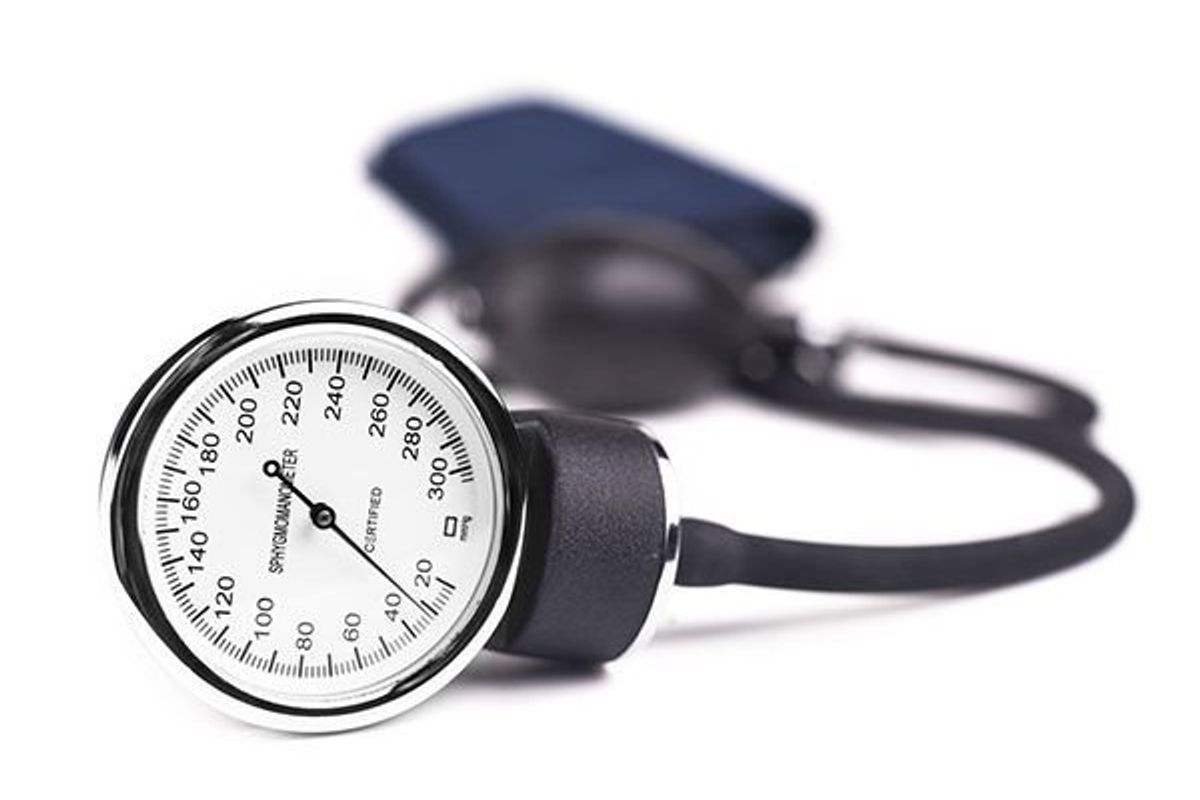
Are Your Controlling Your Blood Pressure?
Nov 12, 2015
Sep 18, 2023

Learn about our editorial policies

THURSDAY, Nov. 12, 2015 (HealthDay News) -- Nearly half of Americans with high blood pressure are not properly controlling their condition, increasing their risk of heart attack, stroke and heart disease, a new government report shows.
About 47 percent of people with high blood pressure have not brought their numbers to a normal range, through either lifestyle changes or medications, according to data published Nov. 12 from the U.S. Centers for Disease Control and Prevention.
That's actually a huge improvement: Back in 1999, more than 68 percent did not have their blood pressure under control, the report found.
But it's far short of the federal Healthy People 2020 goal, which calls for fewer than 40 percent of people with high blood pressure to have it uncontrolled by that date, according to the CDC researchers.
Experts agreed that the problem is still significant.
"I don't think we have enough positive information to be cheering," said Dr. Patrick O'Gara, executive medical director of the Carl J. and Ruth Shapiro Cardiovascular Center at Brigham and Women's Hospital in Boston. "Although the trend is positive, the magnitude of the problem is self-evident. We have a lot of work to do."
High blood pressure is defined as 140 or higher systolic pressure (the top number) and 90 or higher diastolic (the bottom number). Systolic is the pressure of blood in the vessels when the heart beats, and diastolic is the pressure between beats.
The overall rate of high blood pressure in the United States has remained constant, hovering between 28 percent and 29 percent, the new report found.
Two in three people over the age of 60 have high blood pressure, and one in three people between the ages of 40 and 59 have the condition.
What improvements there have been in controlling high blood pressure have not benefitted all groups in the United States.
Whites are most likely to have their blood pressure under control, close to 56 percent, the CDC report showed. Blacks (48 percent under control), Asians (43 percent) and Hispanics (47 percent) are all more likely to be living with uncontrolled high blood pressure.
A large part of the problem is getting people to start taking blood pressure medications, and then to stay up with them, said Dr. Richard Stein, director of the Urban Community Cardiology Program at the New York University School of Medicine.
"Patients don't like to take drugs," Stein said. "I don't like to take drugs. Drugs that don't have an obvious beneficial effect for me, it's easier for me to forget to take them."
High blood pressure is called the "silent killer" because people often have no immediate symptoms. Prescribing medication to a person who feels well can be difficult, Stein said.
"When you start on medication, you're usually prescribed at least two different drugs," he said. "Suddenly you're going from nothing to two or more drugs, and now we've turned you from a person who was healthy and now you think you're sick."
Stein said doctors are going to need to figure out better ways of counseling patients to keep taking their medications, possibly by drawing attention to other members in their family who died of conditions related to high blood pressure.
"If you don't do anything different than he did, you're probably going to have the same problems that he did," Stein said.
O'Gara said that doctors will need to rely on other health care professionals, including nurses and pharmacists, to keep up the pressure on patients to take their blood pressure medications.
"Can we expand the number of providers who would supervise the treatment of hypertension?" he said. "If I had 10 pharmacists who worked with me, I could reach 100 people more effectively. Primary care is shifting to where people go to buy their toiletries and toothpaste, out there in the community for these patients with chronic illnesses. It's not coming to an academic medical center to have me take their blood pressure."
However, it's probably going to take a concerted effort to teach the next generation healthy habits before a big difference is seen in America's blood pressure rates, O'Gara concluded.
"I think it may take a generational change, to alter our proclivity to overeat and use too much salt, to not exercise and spend too much time in front of a screen," he said.
SOURCES: Patrick O'Gara, M.D., executive medical director, Carl J. and Ruth Shapiro Cardiovascular Center, Brigham and Women's Hospital, Boston, Mass.; Richard Stein, M.D., director, Urban Community Cardiology Program, New York University School of Medicine, New York City; Nov. 12, 2015, brief report, U.S. National Center for Health Statistics, U.S. Centers for Disease Control and Prevention
Copyright © 2015 HealthDay. All rights reserved.